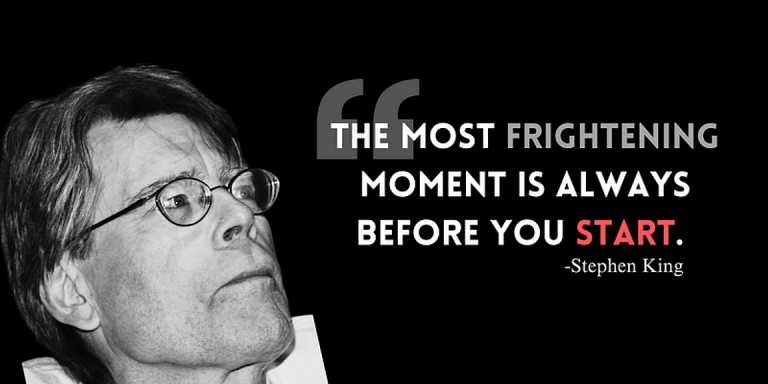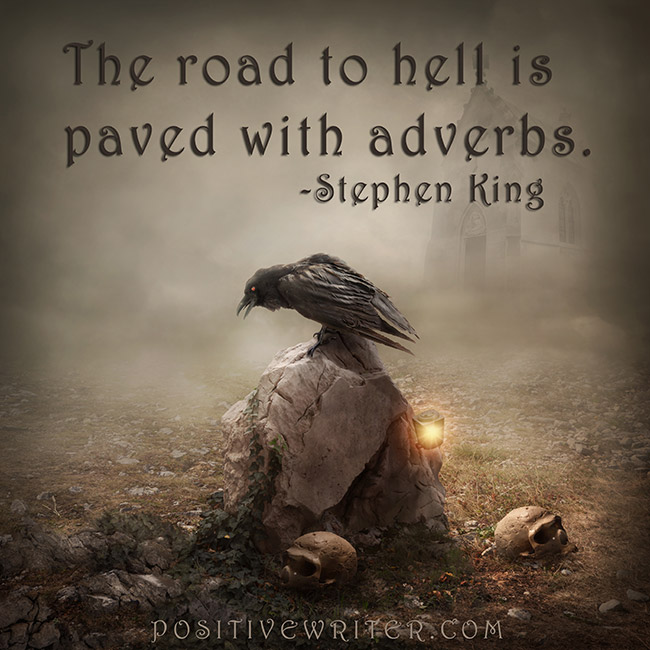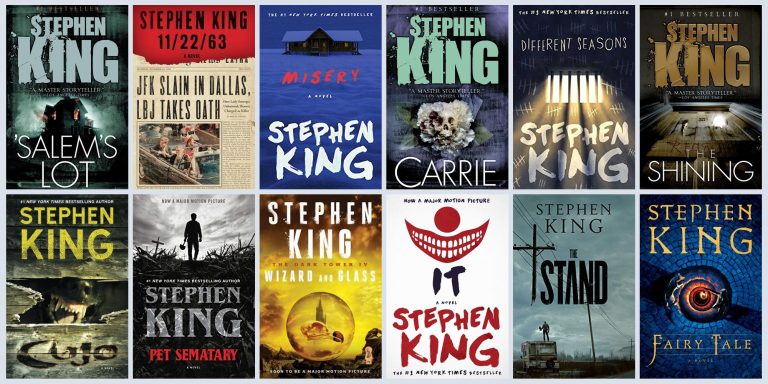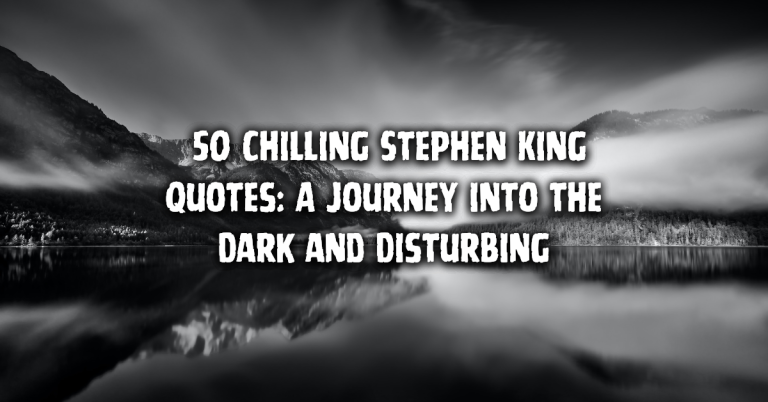Lessons In Dread: Stephen King’s Quotes On Cultivating Fear
In the dark corners of our imagination, where nightmares lurk and goosebumps rise, Stephen King reigns supreme. With his masterful storytelling and ability to tap into our deepest fears, King has become an icon in the realm of horror literature. But what can we learn from the master himself about the art of cultivating fear? In this article, we delve into the chilling wisdom of Stephen King’s quotes, uncovering valuable lessons on how to send shivers down the spines of readers and keep them on the edge of their seats.
Stephen King, the maestro of dread, has a unique knack for evoking fear like no other. His quotes offer insights into the techniques and strategies he employs to create spine-tingling tales. From the power of suggestion to the importance of relatable characters, King’s wisdom can guide aspiring writers on their quest to instill terror in the hearts of their readers. So, grab your flashlight and brace yourself for a journey into the world of horror as we explore Stephen King’s quotes on cultivating fear.
Stephen King, the master of horror, has shared valuable insights on how to cultivate fear in his writing. Through his quotes, he reveals the secrets behind creating spine-chilling stories that keep readers on the edge of their seats. From building suspense to creating memorable villains, King’s advice is invaluable for aspiring horror writers. Dive into the mind of this legendary author and discover the art of crafting fear-inducing tales.
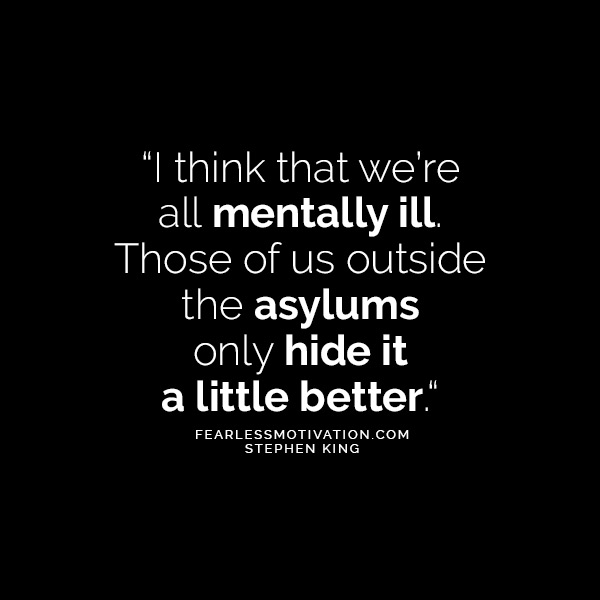
Lessons in Dread: Stephen King’s Quotes on Cultivating Fear
Stephen King, the master of horror, has captivated readers for decades with his ability to cultivate fear through his writing. His quotes on the subject offer valuable insights into the art of creating a truly terrifying experience for readers. In this article, we will explore some of Stephen King’s most insightful quotes on cultivating fear and the lessons we can learn from them.
The Power of the Unknown
One recurring theme in Stephen King’s quotes on fear is the power of the unknown. He often emphasizes the importance of leaving room for the reader’s imagination to fill in the gaps, as it is often more terrifying than anything explicitly described. King once said, “The most important things are the ones that are left out.” By withholding information or subtly hinting at something sinister, authors can tap into the reader’s deepest fears and create a sense of dread that lingers long after the book is closed.
Another quote that highlights this idea is, “The best way to scare people is to get them invested in the characters and then threaten something that matters to them.” King understands that fear is most potent when it strikes at something deeply personal. By creating well-developed characters that readers can relate to and care about, authors can intensify the impact of the fear they instill. When the source of fear threatens something the reader holds dear, the emotional impact is heightened, resulting in a truly spine-chilling experience.
The Importance of Atmosphere
Stephen King’s quotes also shed light on the crucial role atmosphere plays in cultivating fear. He often talks about the importance of setting and how it can contribute to the overall sense of dread in a story. One quote that encapsulates this idea is, “I think the best stories always end up being about the people rather than the event, which is to say character-driven.” King believes that creating a believable and immersive world for the characters to inhabit is essential in building tension and fear.
Furthermore, King emphasizes the significance of details in setting the atmosphere. He once said, “The details are the lifeblood of good fiction,” highlighting the importance of descriptive language in painting a vivid picture for the reader. By carefully selecting and crafting details, authors can transport readers into the world of the story and make them feel as though they are experiencing the fear firsthand.
The Role of Vulnerability
Stephen King’s quotes also touch upon the role of vulnerability in cultivating fear. He often explores the idea of characters facing their deepest fears and vulnerabilities, as this can create a powerful emotional connection with readers. King once said, “The trust of the innocent is the liar’s most useful tool,” emphasizing the impact of betraying a character’s trust and exploiting their vulnerabilities to evoke fear.
Another quote that delves into vulnerability is, “Monsters are real, and ghosts are real too. They live inside us, and sometimes they win.” King recognizes that the most terrifying monsters are often the ones that reside within ourselves, the fears and insecurities we harbor. By tapping into these internal fears, authors can create a sense of unease that resonates deeply with readers.
The Element of Surprise
Stephen King’s quotes also emphasize the element of surprise in cultivating fear. He acknowledges the importance of unexpected twists and turns in keeping readers on the edge of their seats. King once said, “I try to create sympathy for my characters, then turn the monsters loose.” By building empathy for the characters and then introducing unexpected threats, authors can create a rollercoaster of emotions that heightens the fear factor.
Furthermore, King talks about the importance of avoiding clichés and predictable outcomes. He believes that fear is most effective when it comes from unexpected sources or takes unexpected forms. By defying expectations and keeping readers guessing, authors can maintain a sense of suspense and fear throughout the story.
Key Takeaways: Lessons in Dread – Stephen King’s Quotes on Cultivating Fear
- Fear is a powerful emotion that can be harnessed and controlled.
- Creating suspense and tension is crucial in building fear in storytelling.
- Details and vivid descriptions can immerse readers in a terrifying world.
- Understanding human psychology helps in crafting relatable and fear-inducing characters.
- Leaving room for the readers’ imagination can intensify fear.
Frequently Asked Questions
1. How does Stephen King use quotes to cultivate fear in his writing?
Stephen King is a master of horror, and his use of quotes plays a crucial role in cultivating fear in his writing. He often uses vivid and descriptive language to paint a terrifying picture in the reader’s mind. By carefully choosing his words, King creates a sense of dread and unease, making the reader feel the fear right alongside the characters.
Furthermore, King’s quotes often tap into deep-seated fears and phobias that many people can relate to. Whether it’s the fear of the unknown, the fear of losing control, or the fear of something lurking in the dark, King’s quotes strike a chord with readers and tap into their deepest fears, intensifying the feeling of dread.
2. What role do psychological elements play in Stephen King’s quotes on fear?
Psychological elements play a significant role in Stephen King’s quotes on fear. He understands that true terror often stems from the mind, and he skillfully uses psychological techniques to manipulate his readers’ emotions. Through his quotes, King explores the human psyche and delves into the darkest corners of the human mind.
By delving into the fears and anxieties that reside within us all, King’s quotes tap into universal psychological themes. Whether it’s the fear of losing one’s sanity, the fear of being trapped in a nightmarish reality, or the fear of the monstrous side of human nature, King’s quotes resonate on a deep psychological level, leaving a lasting impact on the reader.
3. How does Stephen King’s use of suspense contribute to cultivating fear?
Suspense is a crucial element in Stephen King’s writing, and he uses it masterfully to cultivate fear in his quotes. King understands that building tension and anticipation is essential for creating a sense of fear. He employs various techniques, such as foreshadowing, cliffhangers, and pacing, to keep readers on the edge of their seats.
By gradually increasing the suspense, King heightens the reader’s fear and anxiety, making them eager to know what will happen next. His quotes often leave readers with a sense of impending doom, creating a constant feeling of unease that permeates throughout his stories.
4. How does Stephen King’s use of imagery contribute to the fear factor in his quotes?
Stephen King is known for his vivid and evocative imagery, and he leverages this skill to great effect in his quotes on fear. His detailed descriptions and powerful imagery create a visual experience that brings the horrors to life in the reader’s imagination.
Through his quotes, King paints a macabre and unsettling picture, using sensory details to immerse the reader in the terrifying world he has created. The use of graphic and visceral imagery intensifies the fear factor, making the reader feel as though they are witnessing the horrors firsthand.
5. How do Stephen King’s quotes on fear resonate with readers on a personal level?
Stephen King’s quotes on fear resonate with readers on a personal level because they tap into common fears and anxieties that many people have. King’s ability to delve into the human condition and explore the darkest aspects of the human psyche makes his quotes relatable and deeply unsettling.
Whether it’s the fear of the dark, the fear of death, or the fear of losing loved ones, King’s quotes touch upon universal themes that strike a chord with readers. His quotes often serve as a mirror, reflecting our own fears back at us, and this personal connection intensifies the sense of dread and makes his writing all the more terrifying.
“Stephen King’s Masterclass of Fear: Unforgettable Quotes that Will Send Shivers Down Your Spine”|
Final Summary: Stephen King’s Insights on Creating Fear
And there you have it, folks! We’ve delved into the chilling world of Stephen King’s quotes on cultivating fear. Throughout this article, we’ve explored the wisdom of the master of horror himself, gaining valuable insights into the art of crafting spine-tingling tales. King’s words serve as a haunting reminder that fear is a powerful tool in storytelling, capable of captivating and unsettling readers in ways they never thought possible.
From his emphasis on the importance of relatable characters to his belief in the potency of imagination, King’s quotes provide valuable lessons for aspiring writers and aficionados of the macabre. By drawing readers into a world of dread, King demonstrates how fear can be harnessed to create unforgettable narratives that resonate with audiences on a deep, primal level.
So, whether you’re an aspiring writer looking to explore the depths of horror or simply a fan of Stephen King’s work, take these lessons to heart. Embrace the power of fear, let your imagination run wild, and immerse yourself in the dark recesses of the human psyche. And who knows? Maybe you’ll be the next master of horror, crafting tales that will keep readers up at night, trembling with anticipation.

